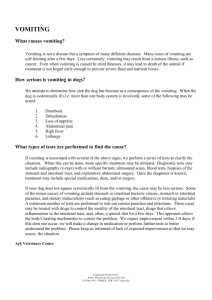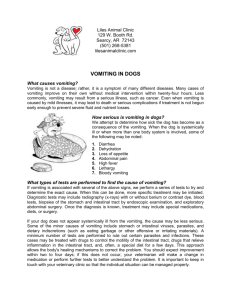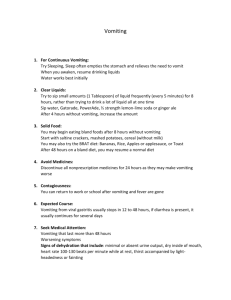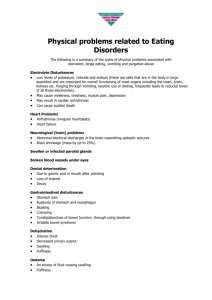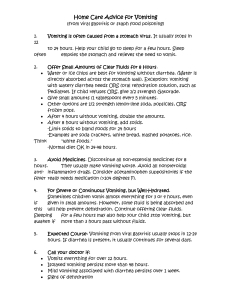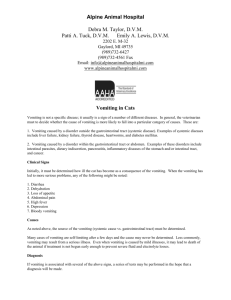VOMITING IN DOGS
advertisement
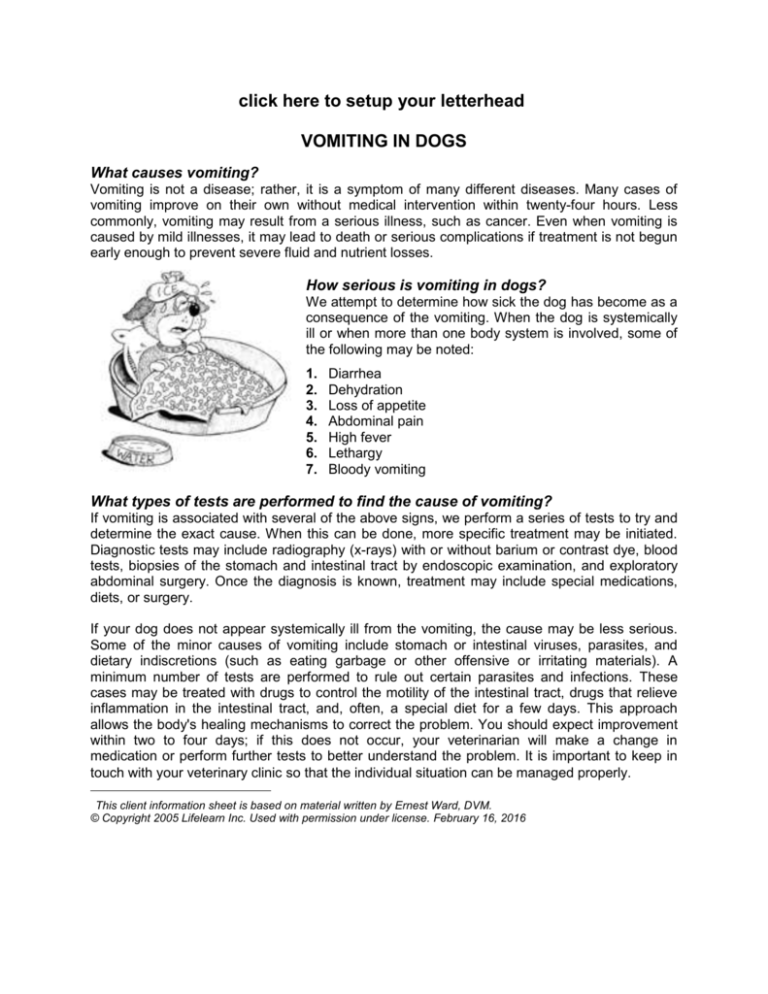
click here to setup your letterhead VOMITING IN DOGS What causes vomiting? Vomiting is not a disease; rather, it is a symptom of many different diseases. Many cases of vomiting improve on their own without medical intervention within twenty-four hours. Less commonly, vomiting may result from a serious illness, such as cancer. Even when vomiting is caused by mild illnesses, it may lead to death or serious complications if treatment is not begun early enough to prevent severe fluid and nutrient losses. How serious is vomiting in dogs? We attempt to determine how sick the dog has become as a consequence of the vomiting. When the dog is systemically ill or when more than one body system is involved, some of the following may be noted: 1. 2. 3. 4. 5. 6. 7. Diarrhea Dehydration Loss of appetite Abdominal pain High fever Lethargy Bloody vomiting What types of tests are performed to find the cause of vomiting? If vomiting is associated with several of the above signs, we perform a series of tests to try and determine the exact cause. When this can be done, more specific treatment may be initiated. Diagnostic tests may include radiography (x-rays) with or without barium or contrast dye, blood tests, biopsies of the stomach and intestinal tract by endoscopic examination, and exploratory abdominal surgery. Once the diagnosis is known, treatment may include special medications, diets, or surgery. If your dog does not appear systemically ill from the vomiting, the cause may be less serious. Some of the minor causes of vomiting include stomach or intestinal viruses, parasites, and dietary indiscretions (such as eating garbage or other offensive or irritating materials). A minimum number of tests are performed to rule out certain parasites and infections. These cases may be treated with drugs to control the motility of the intestinal tract, drugs that relieve inflammation in the intestinal tract, and, often, a special diet for a few days. This approach allows the body's healing mechanisms to correct the problem. You should expect improvement within two to four days; if this does not occur, your veterinarian will make a change in medication or perform further tests to better understand the problem. It is important to keep in touch with your veterinary clinic so that the individual situation can be managed properly. This client information sheet is based on material written by Ernest Ward, DVM. © Copyright 2005 Lifelearn Inc. Used with permission under license. February 16, 2016
